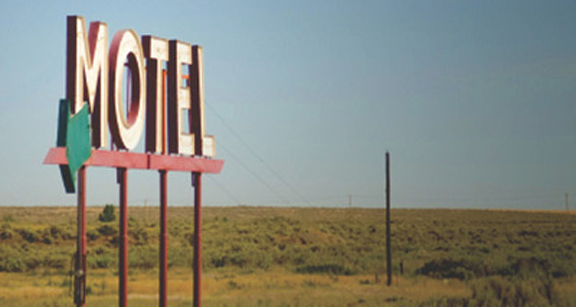
Did you know that 50% of motels in the United States are owned and operated by people of Indian origin?
This is the story about a Patel Motel Cartel and it's my favorite example of hard work, community, and investing profits to build wealth.
This is the story about a Patel Motel Cartel and it's my favorite example of hard work, community, and investing profits to build wealth.

In the 1950s families from India started to immigrate to the US. Because it was so expensive they often relied on money from family to help with travel expenses and getting settled.
Once in the US they got jobs, earned more, helped another family member make the same move.
Once in the US they got jobs, earned more, helped another family member make the same move.
Up until now it's a normal story of family helping family.
Until these two twists:
1) the money was never repaid, but always paid forward.
2) they pooled more money for a down payment on a small motel.
Until these two twists:
1) the money was never repaid, but always paid forward.
2) they pooled more money for a down payment on a small motel.
The family would then move in & run it full time. Spending their days & weekends working the front desk, cleaning rooms, and making beds.
Over time as it grew into a meaningful business they would have free capital to pay forward to another relative who would do the same thing.
Over time as it grew into a meaningful business they would have free capital to pay forward to another relative who would do the same thing.

They worked hard hosting thousands of guests and carefully stockpiling money.
Whenever the stockpile grew large enough it didn’t go into increasing their lifestyle, but instead into the next opportunity, which was nearly always another motel.
Whenever the stockpile grew large enough it didn’t go into increasing their lifestyle, but instead into the next opportunity, which was nearly always another motel.
In 1999, when the NYT wrote the article "a Patel Motel Cartel?" Indian immigrants owned half of all the motels in the US.
nytimes.com/1999/07/04/mag…
nytimes.com/1999/07/04/mag…
When asked why they liked to purchase motels, Vilpesh Patel gave 3 reasons:
1) Technically easy to run
2) You don't need fluent English, just the will to work long hours
3) Consistent cashflow
4) It's a business that comes with a house
1) Technically easy to run
2) You don't need fluent English, just the will to work long hours
3) Consistent cashflow
4) It's a business that comes with a house

Over the decades not only did they earn revenue from each booking, but the land appreciated to become incredibly valuable, making these families rich.
Imagine owning motel properties throughout southern California in small towns that are now booming cities.
Imagine owning motel properties throughout southern California in small towns that are now booming cities.
My 3 favorite things in this story are that they:
1) Rallied together to make one family succeed, and in doing so raised the tide for everyone.
2) Never paid back the money, but instead paid it forward to the next family member to create opportunity for them.
1) Rallied together to make one family succeed, and in doing so raised the tide for everyone.
2) Never paid back the money, but instead paid it forward to the next family member to create opportunity for them.
3) Always poured the money into the next revenue generating asset (another motel) rather than inflating their lifestyle. 

If wealth building is accessible to an immigrant who comes to the US with nothing, it's accessible to you.
Build your community, put in the hard work, & make it happen!
Build your community, put in the hard work, & make it happen!
If you enjoy threads like this on how to earn more and build wealth, do two things:
1) Follow me here on Twitter.
2) Go read my essay, The Ladders of Wealth Creation
nathanbarry.com/wealth-creatio…
1) Follow me here on Twitter.
2) Go read my essay, The Ladders of Wealth Creation
nathanbarry.com/wealth-creatio…
Also if you want to share the thread with the wealth builders in your community, here's a link back to the original tweet:
https://twitter.com/nathanbarry/status/1474035007639330823
• • •
Missing some Tweet in this thread? You can try to
force a refresh
















